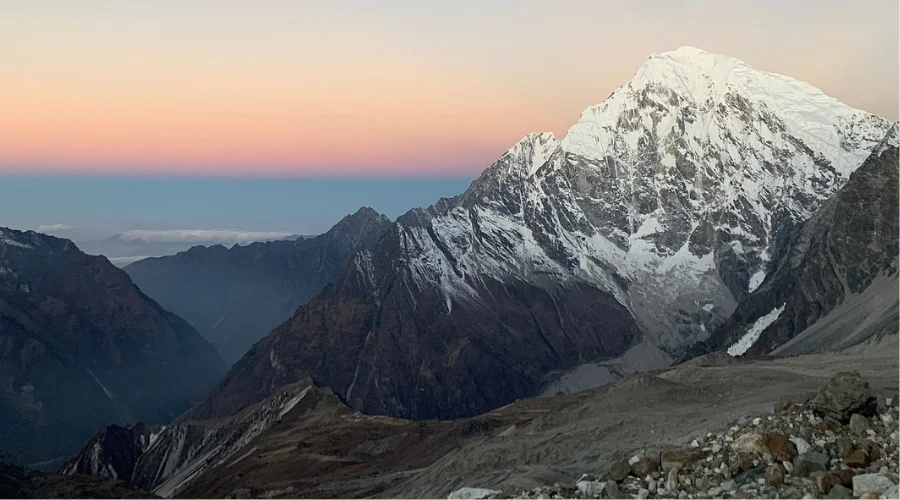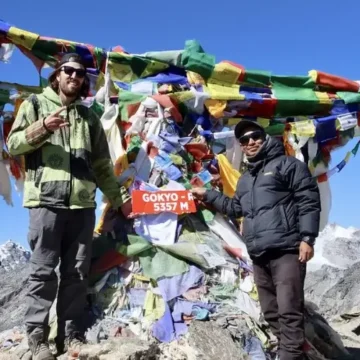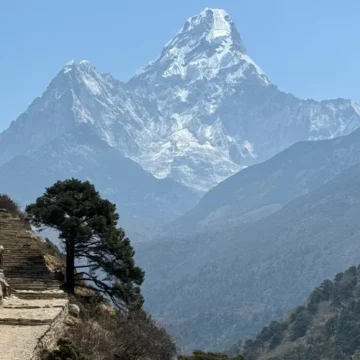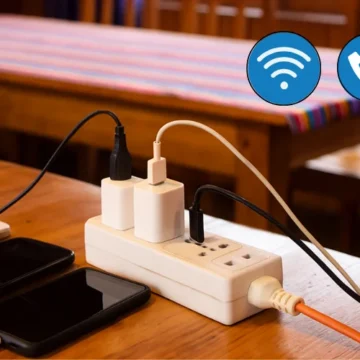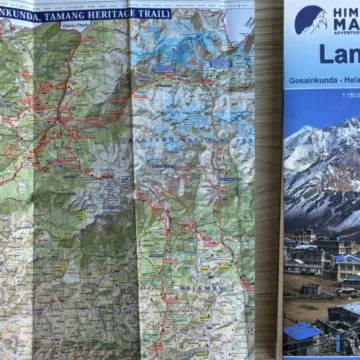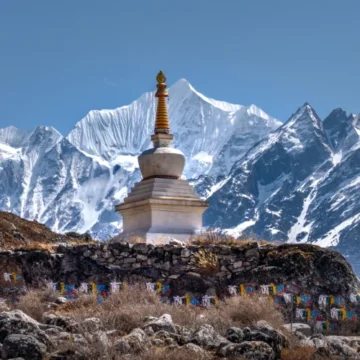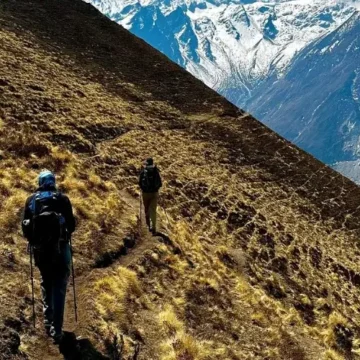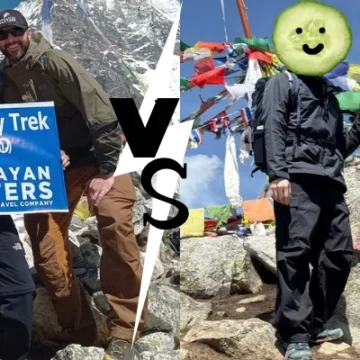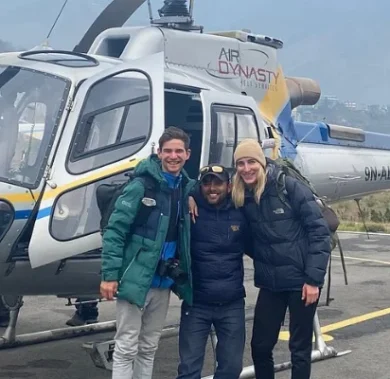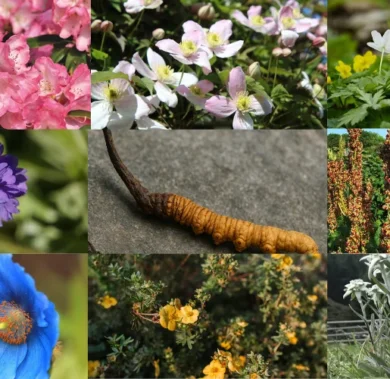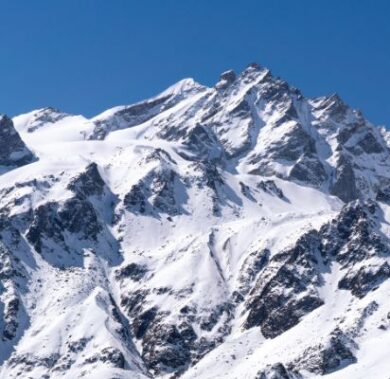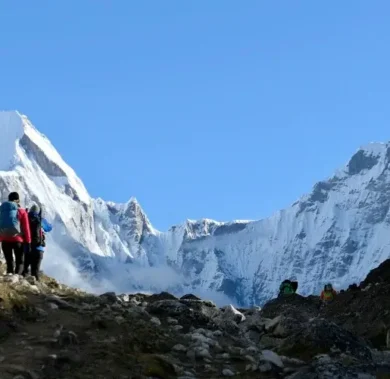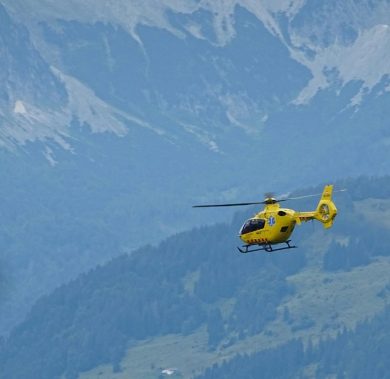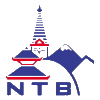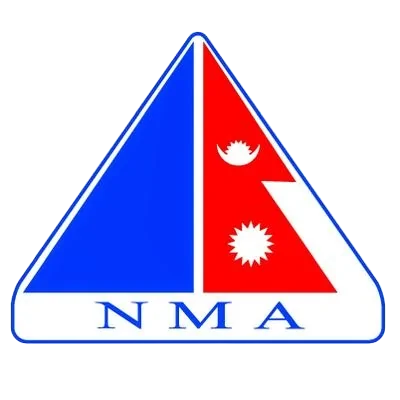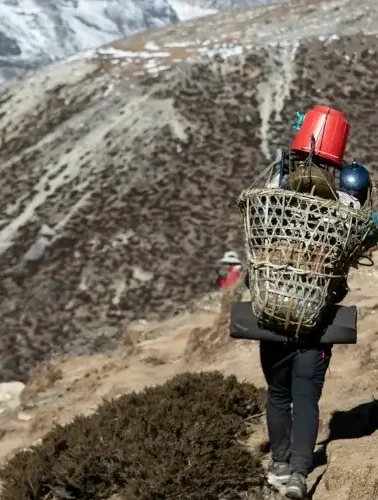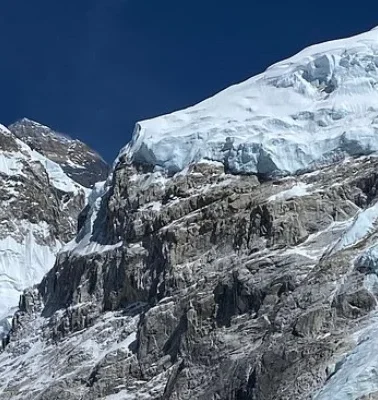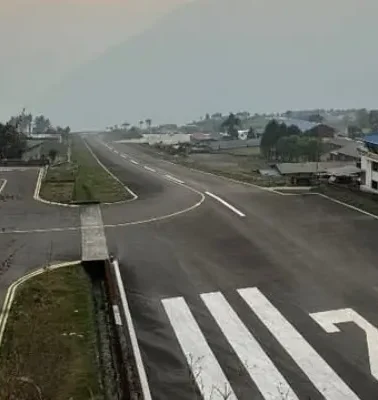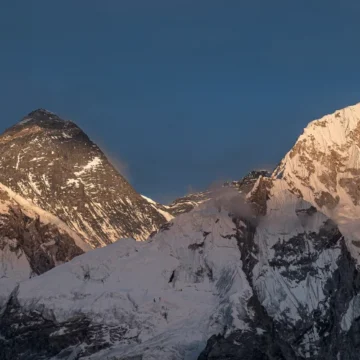
How to Prepare for Yala Peak Climb? Best Experts Guide
Table of Contents
Are you planning to climb Yala Peak? That’s a great decision, but you should know the Yala Peak Climbing preparation before going.
Yala Peak is among the top-tier treks in Nepal, located in the Langtang region. It is a non-technical peak, which means anyone with no mountaineering experience can give it a go. But just because it is easy does not mean you don’t need preparation.
Without the proper training, equipment, and knowledge, your climb will be a stressful experience. We’ve put together a detailed expert guide for preparing to climb Yala Peak, which takes you through the early planning stages to a successful summit.
Brainstorming and Making the Right Choice
First off, what you should do is take some time out for brainstorming. Ask yourself if climbing Yala Peak is the right adventure for you.
This is out of the ordinary for a trek. Although it is put into the easy category of treks in Nepal, what we are doing is climbing a mountain that attains a height of 5732 m/18,806 ft.
You must be honest with yourself. Do you live a healthy lifestyle? Do you enjoy long hikes? Are you mental for being in remote locations with basic amenities? Once you determine that you are the right fit for the Yala Peak climb, only then should you begin to make detailed plans.
Do Some More Research
Before you leave, do some research on Yala Peak in books, blogs, and video Vlogs that may be available online. Also, see what the ones who have climbed it before had to say.
Don’t limit yourself to just the walking path; get to know the mountain. Know how Glaciers form, what the summit is like, and what you can expect in terms of conditions.
Familiarity with the mountain will give you confidence and help you prepare for weather or terrain changes that may come up unexpectedly.
Always Start Early Preparation
Many people wait for a few days or a week before they hit the trail for their trek. That’s not sufficient time at all to get ready for what is really a serious affair like peak climbing.
You must begin your Yala Peak climbing preparation at least two to three months in advance.
If, in the end, you rush through these steps, you are at a greater risk of leaving out something important or breaking down. By starting early, you give yourself the peace of mind to go through everything calmly and confidently.
Physical Fitness and Training
Climbing to the top of Yala Peak doesn’t require great mountaineering skills, but still, there will be challenges. You still put in long stretches of time at high altitudes on rough trails and in weather, which is hard to predict.
Before you go, you will be carrying a backpack and may also be in your climbing gear, which includes things like crampons or a harness. Also, it is very important that your body is in great condition for this.
You don’t need to be a professional athlete, but do see how fitness can transform things. If you are not already active, begin with easy daily workouts.
Walking is a good way to start out. As the weeks go by, you may gradually increase the time and distance of your walks. Try jogging, swimming, cycling, or climbing stairs to improve your stamina.
Also, try this out as a great piece of advice: go for walks while carrying a backpack. Begin with a light pack and gradually increase the weight.
That’ll have your body getting used to the weight of the gear you’ll be wearing during the actual trip. Also, you may want to put on the hiking boots you’ll be taking along; that way, you can break them in and avoid blisters at the end of the trip.
Prepare your Mind and Body Mentally
Many people put all their focus into the physical aspect of training, which is a mistake. Sometimes, the mental game is just as important, if not more.
With trekking and climbing, we are also engaging in a very emotional experience. Also, we should work on the mental side, which, in some cases, is where it all comes from.
Daily, you will be on your feet for very long hours, which at times will be in the cold or out in the sun. Also, you will face unexpected weather changes, which may come in a moment, limited food choices that are very basic, and issues with sleep at high altitudes.
Altitude sickness is also a risk. Even if you are in good physical condition, the lower oxygen levels up high make you tired, dizzy, or out of breath. That’s which is when mental strength comes in. You must stay calm and tell yourself that these issues are part of the journey.
Your point of view can really form your experience. Put out positive energy even when things fall through. If it is a full day of rain, or your body is weak, don’t let it bring you down. Be flexible with what you expect.
At times, your schedule may change due to weather or safety issues. With a strong mindset, you’ll enjoy the journey, which in turn minimizes focus on the discomfort.
You may also try out things like meditation, breathing exercises, or journaling to build mental focus. These are helpful when you’re on the mountain and need to stay centred and patient. Also note that while strong legs may take you far, a strong mind will help you enjoy the climb.
Arrival at Kathmandu
As per your itinerary and the things you have scheduled in your head, you will arrive at Kathmandu. If you book your Yala Peak Climbing with Himalayan Masters, our representative will be at the TIA to pick you up and drop you off at the hotel.
Before you start your climbing, you will have a detailed climbing briefing session at the Himalayan Masters office.
But if you choose to go alone, then you will have the disadvantage of getting no details of the route overview and difficulties.
You will also have enough time to check your gear and packing list twice and rest for the climb.
Acclimatization Strategy
Acclimatization is a must when you go to high altitudes. It is a process of your body slowly adjusting to the reduced oxygen at great heights.
Many climbers fall out of the attempt because they don’t pay attention to acclimatization. Don’t rush your trip when planning to choose a route that includes an extra one or two days in the Langtang region before getting to base camp.
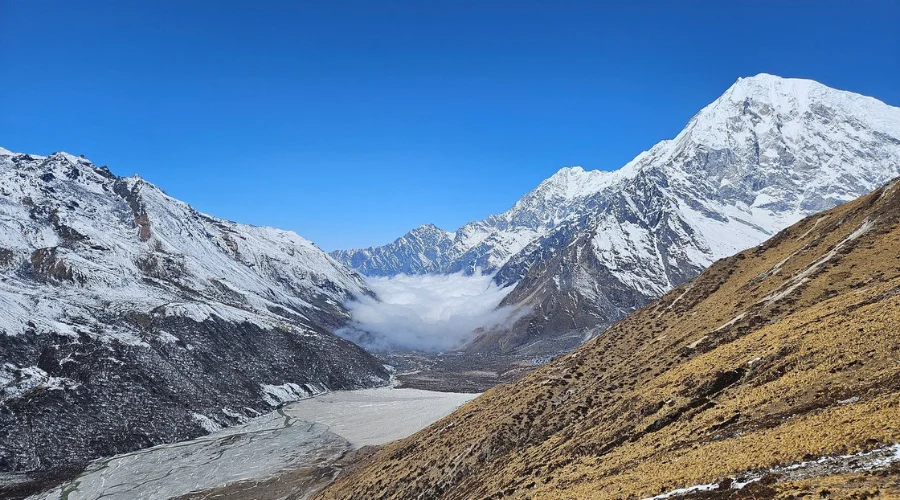
Drink a lot of water, eat well, walk at a slow pace, and take rest when you need it. Altitude sickness is a thing for all; even the very fit will get it. So, pay attention to what your body is telling you.
Gear Preparation for Yala Peak Climb
Without the right gear, which for many is very basic, you will have a tough trek, even if it’s easygoing. You need appropriate clothing and climbing equipment. The weather may turn very cold at night, also at base camp and during the summit push.
So, you will want to have on thermal wear a down jacket, gloves, woollen hats and waterproof layers. As for your trekking boots, they should be tough and comfortable.
Also, if you are to rent your climbing gear, check that it fits well and is in good condition.
Essential for you to rent before you go to Kathmandu or the Langtang area are climbing harnesses, ice axes, crampons, and helmets. Don’t leave it until the last minute to check your gear.
Permits and Documents
To climb Yala Peak, you will require all the proper permits. First up, you’ll need a Langtang National Park entry permit.
You will not be needed to get any climbing permits for Yala Peak. Make sure to have travel insurance.
It is a must to cover emergency helicopter rescue and high-altitude trekking in addition to a few passport-size photos. Also, see to it that you have the travel insurance.
Hire Certified Company
Booking with Himalayan Masters in that environment is your best resource for the trail, the mountain, and emergency situations.
At high altitude issues, they do what you need and make sure safety is first. Also, a good guide does that with regard to the logistics of food, tents, and climbing gear.
You can also hire porters for your heavy bags. We provide full Yala Peak climbing packages, which include transport to and from, securing permits, and accommodation.
Medical and Health Preparation
Before you hit the trail, see your doctor for a basic health check in which you are to present that you are fit to travel to high altitudes.
Pack a personal first aid kit that includes medicine for headaches, stomach issues, colds, and altitude sickness. Also, consider bringing Diamox tablets for acclimatization.
Other items such as sunscreen, lip balm, and water purification tablets are also very important. Disregard minor health issues for which you may think not to pay attention because they can, in fact, become major problems in the mountains.
Know About Trail and Difficulty
The trail that leads to Yala Peak starts in Syabrubesi, and we pass through Lama Hotel, Langtang Village, and Kyanjin Gompa. The trek is very pretty and peaceful and is filled with forests, small villages, rivers and snowy mountains.
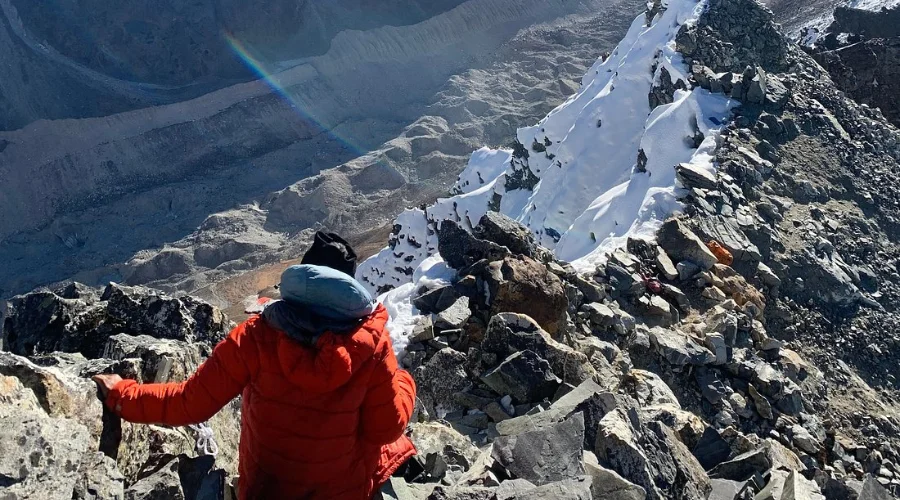
The trail is marked very clearly and is easy at first. However, the last day of the climb from base camp to the summit is a different story.
There will be snow and ice, which may require the use of ropes and crampons. With a guide, it is still very doable and not too difficult.
Food and Teahouse Facilities
During the journey, you will stop at teahouses. These are small mountain lodges which provide food and accommodation.
You’ll see a variety of simple cuisine such as Dal Bhat (rice and lentils), noodles, soups, and fried rice. Also, they serve tea, coffee and garlic soup for the altitude. Rooms are basic but clean.
At Base Camp, you’ll sleep in tents, and it is your team who will prepare the food. It may not be luxurious, but it is warm and safe.
Preparing Yourself for the Yala Summit Push
The most important day is about to come, Yala Summit Push. While you are at the Yala Peak Base Camp, please be aware of what conditions you are at.
At such heights, whether you have a cold, fever, fatigue or something, make sure to be aware of these things. Since the next day will be your heavy climbing day, adapt your body to such altitudes and be ready for the next day’s push.
Similar Post You May Like: How to Prepare for Everest Three Passes and Base Camp Trek?
Know About Height, Weather, and Temperature
Yala Peak is at an altitude of 5,732 meters. As you go up, the thin air presents a greater challenge to breathe.
That is why it is important to know about altitude and how your body responds at different levels. As for Yala Peak, the best time for Yala Peak climb is spring (March to May) and autumn (September to November).
During this time, the weather is stable, with very clear skies. Days are mild, but nights are very cold, at times dropping to -15°C or more at Base Camp.
Cost and Visa Preparation
Climbing of Yala Peak is a more budget-friendly option as compared to other peaks in Nepal.
You see an average cost range of between 700 to 1,200 US dollars, which varies based on the company and what services they include. What is included in that price typically is permits, guide and porter wages, food, accommodation, transport, and gear rentals.
For your Nepal visa, you may obtain it at the airport in Kathmandu. They charge a fee of $30 for the 15-day visa and $50 for the 30-day one. Also, see to it that your passport has at least six months of validity.
Climbing Yala Peak Without Experience: Is that possible?
Yes, it is a fact that you do not need to be a climber to scale Yala Peak. That’s what makes it the best choice for beginners in Nepal. But although it is an easy peak that is great for new climbers, you should not treat it as a walk in the park.
You will still have to put in the work at the body, learn the basics of climbing, and pay close attention to your guide’s advice. For a first-time climber, Yala Peak is an ideal place to get into high-altitude mountaineering.
Are you the best fit for Yala Peak?
Yala Peak climb is an incredible experience. We go from walking through quiet mountain villages to standing at the top of a snow-covered summit, which is a journey.
Through proper planning, fitness training and expert guidance, any person can put Yala Peak on their success list, which does not require prior climbing experience.
Just begin your Yala Peak Climbing preparation early, trust the process and enjoy each moment of the climb.
Want to know more?
Speak to an Expert


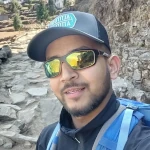


Sandip Dhungana
Nepal 🇳🇵
Whatsapp: +977-9823636377

